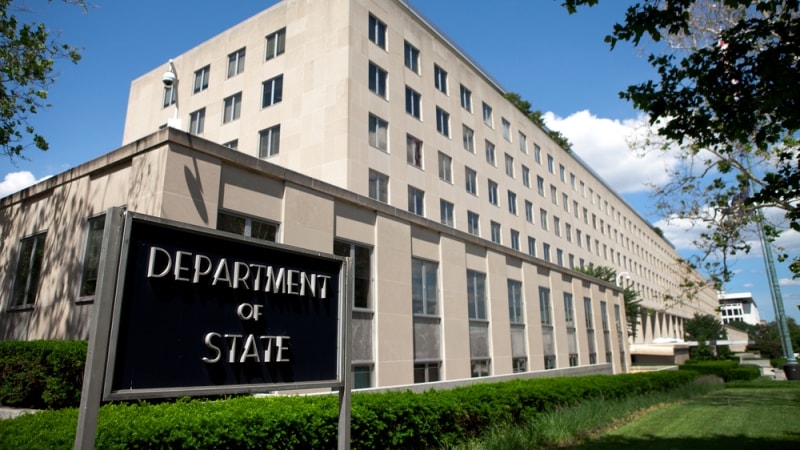
After fits and starts reaching back over the last two years, the State Department has unveiled plans to establish a new Bureau of Cyberspace and Digital Policy, along with an envoy for critical and emerging technology, State Department spokesperson Ned Price announced at a press briefing this week.
The decision to set up the new bureau and envoy was based on the State Department’s findings from a comprehensive review of its cyberspace and emerging technology policy and organization, as part of a broader modernization effort at the agency.
The new cyber bureau will be “led by a Senate-confirmed ambassador-at-large which will focus on three key areas: international cyberspace security, international digital policy, and digital freedom,” Price said.
The international cyberspace security aspect will focus on cyber policy, negotiations, deterrence, operations, and capacity building, Price explained. The international digital policy aspect will center around engaging with the International Telecommunication Union, standard-setting bodies, promoting trusted telecommunications systems, digital technology tracks, and multilateral agenda.
“This will integrate the core security, economic, and values components of our cyber agenda,” Price said. “We also plan to establish a new special envoy for critical and emerging technology to lead the immediate technology diplomacy agenda with our allies, partners, and across the range of multilateral fora.”
The creation of a cyber bureau at the State Department has been a work in progress for years.
In January 2019, House members introduced a bill to create an Office on International Cyberspace Policy in the State Department, led by an ambassador for cyberspace. Then in June 2019, the department notified Congress of its intent to create a Bureau of Cyberspace Security and Emerging Technologies (CSET).

Explore increasingly hot button cyber issues that are top-of-mind. Learn more.
However, CSET faced criticism after then Secretary of State Mike Pompeo approved the establishment of the cyber bureau in the final days of the Trump administration. Lawmakers urged President Biden to hit pause on CSET once he took office, claiming CSET was “a misguided cyberspace reorganization,” and that it lacked emphasis on international cyber policy.
Price said the new cyber bureau plan follows a “very different structure” from the one proposed under the previous administration, and both the bureau and separate envoy will report to Deputy Secretary of State Wendy Sherman. Under CSET, the bureau would have reported to the under secretary for arms control and international security.
The new bureau structure was praised by Christopher Painter, the former State Department coordinator for cyber issues under both the Trump and Obama administrations.
“This is a great development and strong structure. I’ve long said that a new cyber bureau needs cross-cutting authority and be placed at a high level in the organization,” Painter said in a tweet. “This does both – broad and appropriate mandate and reporting to the Deputy Secretary of State.”
“Even better because [Wendy Sherman] knows cyber, its importance, and how security, economic and human rights issues are interdependent,” Painter added.
